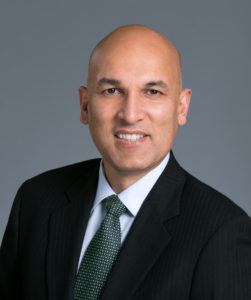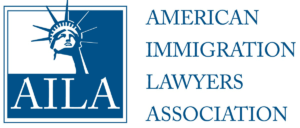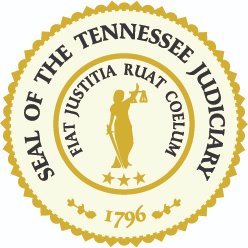What is an E-3 Visa: Complete Guide
Established by the REAL ID Act of 2005, the E-3 nonimmigrant classification allows an Australian national to enter the U.S. to perform services in a “specialty occupation”. E-3 nonimmigrant status is initially granted for a period of no more than two years but extensions of stay may be granted indefinitely in increments not to exceed two years. In order to obtain an E-3 classification, the employer must demonstrate that the position, for which the E-3 is being filed, requires a professional in a “specialty occupation” and, further, the foreign national (beneficiary) meets the required qualifications and is an Australian national.
A "specialty occupation" is an occupation that requires theoretical and practical application of a body of highly specialized knowledge and attainment of a bachelor's or higher degree in the specific specialty (or its equivalent) as a minimum for entry into the occupation in the United States.
During each fiscal year running from October 1 to September 30, USCIS (US Citizenship & Immigration Services) allows up to 10,500 foreign nationals to receive initial E-3 status.
E-3 Procedure & Requirements
- The Australian national must have a U.S. equivalent bachelor’s degree;
- Attainment of a bachelor’s or higher degree in the specific specialty (or its equivalent) should be the minimum entry into the occupation;
- The petitioner must obtain a labor conditional application (LCA) from the U.S. department of Labor;
- Upon approval of the LCA, the employer should file a Form I-129 petition with the US Citizenship & Immigration Services (US CIS);
- Instead of employer first obtaining the I-129 approval notice, the Australian national has the option to apply for a E-3 visa at a US Consulate with a proof of Australian nationality, certified LCA, and a letter from the prospective U.S. employer describing the alien’s occupation, the alien’s anticipated length of stay, and salary/remuneration arrangements;
- Unlike H-1B, individuals in E-3 status are not covered by 8 CFR 274a.12.12(b)(20), which provides authorization to continue employment with the same employer while a timely filed application for extension of stay is pending;
- Similarly, portability provisions of H-1B are not available to E-3 worker.
Related Issues
- The spouse and unmarried child/ren below the age of 21, regardless of their nationality, are allowed to accompany/join the E-3 beneficiary;
- Unlike the dependent of an alien in H-1B nonimmigrant classification, the dependent spouse of an E-3 worker may apply for and receive work authorization;
- As E-3 is a separate classification from the H-1B classification, the additional fee required for H-1B do not apply to E-3 applicants.
E-3 Visa Questions & Answers
A "specialty occupation" is an occupation that requires theoretical and practical application of a body of highly specialized knowledge and attainment of a bachelor's or higher degree in the specific specialty (or its equivalent) as a minimum for entry into the occupation in the United States.
While having a bachelor's degree is a requirement for the E-3 visa, persons without a 4-year bachelor's degree may be able to get by with job experience instead. Three years of specialized work experience is typically equivalent to one year of formal education. Therefore, you may still be eligible for E-3 status despite not having a bachelor's degree.
For over 22 years, we've been tackling intricate issues such as these and are fully prepared to assess your qualifications to navigate you through the process. Our team will rigorously analyze your individual case, drawing links between your targeted coursework and professional experience. Utilizing this methodology, we might be able to obtain an experiential evaluation that aligns your educational background and work history—or just your education—with a degree that is closely related to the specialty occupation in question.
Yes, the E-3 is visa category that has to be sponsored by an employer, meaning you must have a job offer from a U.S. employer to be eligible for an E-3 visa. Additionally, the employer must file a Labor Condition Application (LCA) with the U.S. Department of Labor (DOL). After obtaining the LCA, the employer will also need to support your visa application by providing relevant documents and information, including a detailed job description, proof of your qualifications, etc.
If you're currently residing outside the U.S., you can apply for an E-3 visa directly through a U.S. Consulate in your country. However, if you're already in the United States in a valid nonimmigrant status, you have the option to apply for the E-3 visa by filing a change of status application with the USCIS Service Center.
Yes, purchasing a house is possible on an E-3 Visa.
On an E-3 visa, you're not permitted to work as an independent contractor, often referred to as a 1099 worker. A bona fide employer-employee relationship, typically evidenced by a W-2 form, must exist between you and your E-3 sponsoring employer.
While on an E-3 visa, you're not permitted to freelance. A bona-fide employer-employee relationship, typically evidenced by a W-2 form, must exist between you and your E-3 sponsoring employer.
Yes, you are eligible to work part time while on an E-3 status.
While some visas like H-1B permit dual (immigrant and nonimmigrant intent) it is important to demonstrate nonimmigrant intent while you are on E-3 visa. However, unlike some other visa nonimmigrant visa categories like B, F-1, etc. which also require nonimmigrant intent, there is no obligation to maintain a residence outside the U.S.
You can work for multiple employers while on E-3 status. However, you have two options to do so:
- You obtain a concurrent E-3 Visa at a U.S. Consulate. This approach will necessitate documentation from each employer you intend to work for. Once granted, this allows you to work for multiple employers immediately upon your admission to the U.S.
- Alternatively, your prospective E-3 employers can apply for concurrent E-3 petition with the USCIS while you are already in the United States. In this scenario, you'll need to wait for the approval of your petition before you can start the employment specified in the application.
Spouses of E-3 Visa holders are eligible to file for E-3D Visas and obtain employment authorization (under E-3D spouse status) upon entering the United States. E-3D Visas are also available to the unmarried, under-21-year-old offspring of E-3 visa holders, regardless of their citizenship status.
Customs and Border Protection has affirmed that as of January 31, 2022, E-3 dependent spouses entering the United States will receive a new I-94 admission code, designated as E3S. This new code automatically authorizes the spouse to work.
E-3 dependent spouses and children may attend school in the United States. It is essential to note, however, that while they hold E-3D status, they will not be eligible for employment benefits typically associated with F-1 student status, such as post-completion Optional Practical Training. In addition, E-3D minors enrolled in U.S. universities who reach the age of 21 must switch to an F-1 visa in order to continue their studies.
If an E-3 employee's job is terminated or they resign, they will enter a grace period. This period is either 60 days or the remaining time left on their current E-3 status as indicated by their I-94, whichever is shorter.
During this grace period, the E-3 employee must take one of the following actions:
- Secure a new E-3 Petition from another employer.
- Apply for a change of status with the USCIS, or
- Leave the United States
If a new E-3 petition is submitted and receipted by the USCIS within this grace period, the E-3 employee is in a 'period of stay authorized by the Attorney General' while the application is pending with the USCIS. However, employment with the new employer cannot commence until the pending E-3 is approved.
A change of status application filed within the 60-day grace period will also offer protective status to the E-3 employee as long as it remains pending and has been filed in good faith.
If you're an E-3 applicant located outside the U.S., your application must be submitted through a U.S. Consulate. Although applying via the U.S. Consulate in Australia is often recommended, numerous other U.S. Consulates are also capable of processing your E-3 visa application.
While H-1B visa carries few advantages, Australian citizens are encouraged to consider E-3 Visa opportunities, as consular processing can significantly expedite visa approval and entry into the U.S. Moreover, E-3 visa applications are more cost-effective option as employer is exempt from Fraud and ACWIA fees. Additionally, while H-1B number run out on day 1, 10,500 initial E-3 are hardly every used. Finally, unlike H-1B, E-3 visas don't have a set expiration date and can be extended indefinitely.
During the E-3 application process, your employer is required to file LCA with the Department of Labor. As part of our service offering, we will collaborate with you and your employer to pinpoint the optimal mix of educational background and work experience for your role, identify the appropriate occupational code, determine the prevailing wage, and submit the LCA electronically. Upon LCA approval, we'll compile the supporting documentation and assemble your E-3 visa application package.
Although the Department of Labor typically certifies the Labor Condition Application within 7 days, the overall timeline for completing the E-3 visa process can vary. Factors influencing the timeline include the speed at which you and your employer furnish the necessary documents to us, as well as the availability of visa appointments at the U.S. Embassy. Ideally, the entire E-3 Visa process usually takes between 4 to 8 weeks.
If you're applying for an E-3 visa at a U.S. Consulate abroad, a visa application fee of $205 is required. For individuals already in the U.S. on a nonimmigrant visa looking to extend or change their status, a USCIS fee of $460 applies. Should you opt for premium processing to expedite the decision to 10-15 days, an additional USCIS charge of $2,500 will be incurred.
Meet Attorney Asheesh Sharma – Your Trusted Advisor
Attorney Asheesh Sharma, with 22+ years of professional experience in U.S. immigration law, is a familiar figure both in Australia and the U.S. His frequent visits to Australia and family ties across the country enhance his understanding of the unique needs of Australian clients. His personal experience with the U.S. Consulates in Australia, first as an applicant and then representing clients, brings invaluable insights and empathy to your case.



